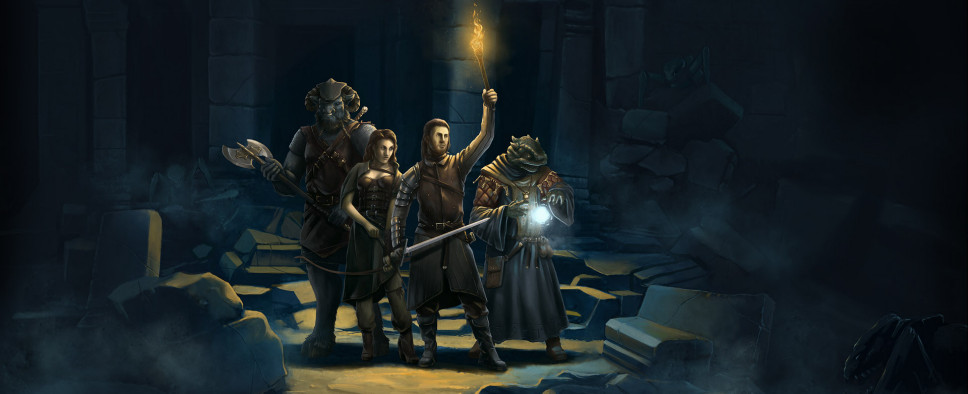What Turns a Dungeon Into a Fun-geon
-
Category: News ArchiveHits: 2388

Fun dungeons, or fun-geons as PC Gamer's editors call them, have been a cornerstone of RPGs pretty much since the day they branched off from wargames. And as such, this PC Gamer article tries to figure out what makes a good dungeon tick and why they remain integral to the genre till this day.
A couple of sample paragraphs:
They're inherently constrained spaces, which has advantages. It means they offer very clear, limited decisions (go left, or go right?) which can be really refreshing compared to the often overwhelming openness of so many big games these days. They offer a complete, self-contained space that it feels within your grasp to learn and understand as you progress or root out secrets. Legend of Grimrock is a fantastic example of that idea done well—because the whole game is just one big dungeon, you get to know that space so well that by the end you're spotting secret buttons just because they don't match the stonework perfectly. You go from a scared rat in a maze to the master of your environment and that's super satisfying.
They also don't need a lot of justification. I always want games to give me some kind of control as early as possible—a huge lore dump before you even get to press a key, or dropped in just as things start getting interesting, can be a real momentum-killer. Dungeons need very little explanation or justification—we accept their presence the same way we do the presence of elves and magic swords, and they are inherently set up to be game spaces. Why are there monsters and traps to overcome? Because it's a dungeon. Why are there secret doors and puzzles? Because it's a dungeon. Why is there a boss guarding treasure at the end? Because it's a dungeon. Any more explanation than that can be sprinkled on as you go.

